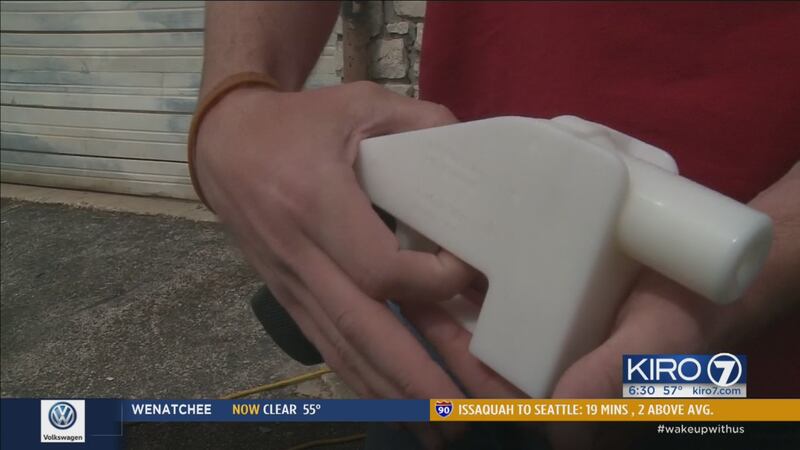SEATTLE — A federal judge in Seattle was expected to decide on Monday whether to permanently block a Texas company from posting plans online that show people how to make 3D printable guns.
U.S. District Court Judge Robert Lasnik, who has said he feels the issue should be worked out by Congress and the executive branch, did not make a final decision, but instead extended his previous temporary restraining order blocking the distribution of such plans until the matter is resolved in court.
The move comes after Washington State Attorney General Bob Ferguson sued the Trump Administration late last month.
The federal government had reached a settlement with Texas-based Defense Distributed to allow the 3D printable gun plans to be posted online.
Ferguson, joined by nearly two dozen other states, argued allowing the plans to be posted online would make Americans vulnerable to criminals and terrorists and called the guns untraceable and undetectable.
Once again, I'm glad we put a stop to this dangerous policy," Ferguson said. "But I have to ask a simple question: why is the Trump Administration working so hard to allow these untraceable, undetectable 3D-printed guns to be available to domestic abusers, felons and terrorists?
Ferguson said in a news release Monday.
State officials in Pennsylvania had won a legal battle to stop the plans from being available there, but their attorney general said plans had already been made available online and downloaded more than 1,000 times.
An excerpt of Judge Lasnik's order follows:
Finally, the federal defendants argue that the States will not be harmed at all because the United States is committed to enforcing the Undetectable Firearms Act of 1988. While the Court appreciates the earnestness with which this commitment was made at oral argument, it is of small comfort to know that, once an undetectable firearm has been used to kill a citizen of Delaware or Rhode Island or Vermont, the federal government will seek to prosecute a weapons charge in federal court while the State pursues a murder conviction in state court. The very purpose for which the private defendants seek to release this technical data is to arm every citizen outside of the government's traditional control mechanisms of licenses, serial numbers, and registration. It is the untraceable and undetectable nature of these small firearms that poses a unique danger. Promising to detect the undetectable while at the same time removing a significant regulatory hurdle to the proliferation of these weapons - both domestically and internationally - rings hollow and in no way ameliorates, much less avoids, the harms that are likely to befall the States if an injunction is not issued."
Cox Media Group








